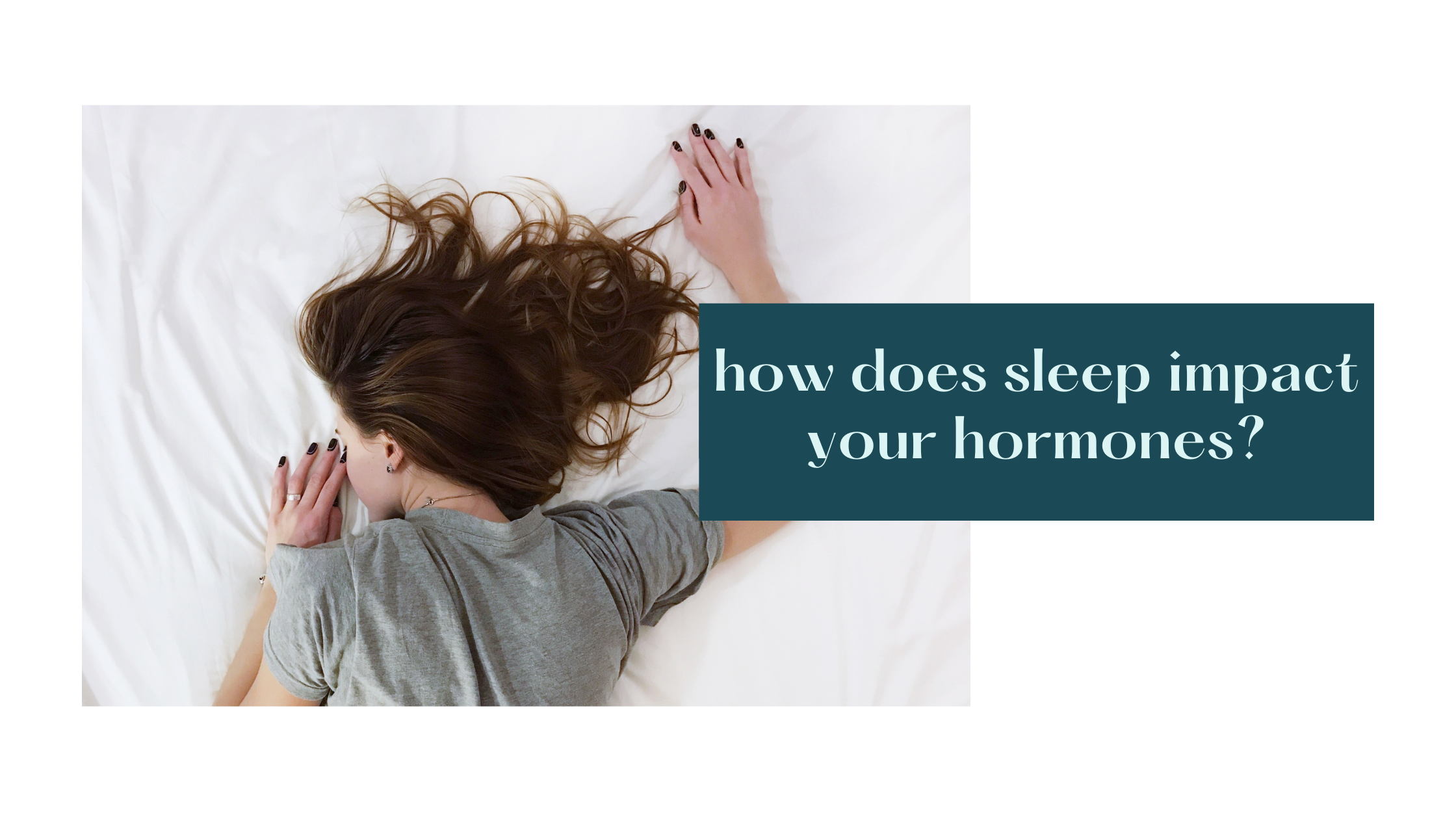 Did you know that nearly 60% of Canadians experience symptoms of insomnia and sleep less than the recommended nightly hours for optimal health? In 2020, “insomnia” was Googled more than ever before. Sleep problems have been steadily on the rise for years and appear to have worsened over the course of the pandemic.
Did you know that nearly 60% of Canadians experience symptoms of insomnia and sleep less than the recommended nightly hours for optimal health? In 2020, “insomnia” was Googled more than ever before. Sleep problems have been steadily on the rise for years and appear to have worsened over the course of the pandemic.
Sleep quality has a major impact on nearly all areas of your life, including your hormones. There are a number of hormones that play a role in sleep patterns and circadian rhythms, but the two primary hormones that influence sleep (and carry out opposing functions) are cortisol and melatonin.
Cortisol, melatonin, and their relationship to sleep
Cortisol is produced in the adrenal glands and is the body’s main stress hormone, but it’s also closely related to our sleep-wake cycles. In the morning, our cortisol levels are typically at their highest. This is known as the awakening response, with cortisol levels rising rapidly for the first 60 minutes or so after waking. In this way, cortisol acts as the body’s natural alarm clock; however, it’s quite common for this system to be thrown off by both internal and external factors.
Many people are familiar with the supplement melatonin but unaware that it’s also naturally produced through the amino acid tryptophan in the pineal gland. Melatonin doesn’t directly put you to sleep, but it is responsible for promoting healthy sleep patterns and helping to regulate circadian rhythms. Melatonin begins to rise as the sun goes down and is at its highest in the middle of the night. Its production is triggered through darkness, and conversely, suppressed by light exposure; this is why it’s so important to sleep in a completely dark space and limit exposure to light (including light emissions from digital screens) as we ready ourselves for sleep in the evening.
What is the HPA axis and how does it impact our sleep?
The hypothalamic-pituitary-adrenal (HPA) axis is a neuroendocrine mechanism that functions to maintain physiological homeostasis. It acts as the body’s central response system and the mechanism that connects the nervous system and endocrine system. Prolonged or extreme stress stimulates the adrenal release of cortisol, challenging the body’s ability to reach homeostasis and impacting several physiological responses, including sleep.
The HPA axis has a correlative relationship with sleep and is closely related to both cortisol and melatonin. HPA axis activation is associated with sleep disorders, whether it’s the cause or result. Insomnia, obstructive sleep apnea, fragmented sleep and decreased overall sleep time are all related to dysfunctional HPA axis activity and elevated levels of cortisol in the body. Melatonin has a regulatory impact on the HPA axis; however, in many cases, the levels of endogenous melatonin (the hormone produced naturally within the body) are not high enough to balance HPA activity and cortisol levels.
Insulin, glucose, progesterone and estrogen
Other hormones are also impacted as a result of this interplay between sleep, cortisol and melatonin. For example, studies have shown that sleep deprivation increases glucose levels while reducing insulin sensitivity, and can also impact hunger hormones leptin and ghrelin. Not only is appetite and blood sugar impacted by poor sleep quality and duration, but inflammatory markers (like IL-6y and C-reactive protein) and oxidative stress also increase when we’re not sleeping properly and experiencing elevated levels of cortisol over extended periods of time.²
Sleep also impacts estrogen and progesterone production. Like melatonin, progesterone is an important hormone for supporting healthy sleep habits, stimulating the production of GABA in the brain and promoting deeper relaxation and sleep. When you’re struggling with sleep, your stress hormones will likely impact the balance of estrogen and progesterone in your body.

Long-term health problems associated with sleep disorders
Insomnia and sleep deprivation can increase your risk for a number of serious health issues, including:
- Heart disease
- Stroke
- Obesity
- Depression
- Anxiety
- Seizures
It also impacts memory, libido, judgment and work performance, and can shorten life expectancy. Sleep difficulties are extremely common but can have a number of causes and contributors. It’s important to pay close attention to your personal habits, choices and challenges to determine which factors may be impacting your sleep. Diagnostic testing, including blood tests, food sensitivity tests, and the dry urine dutch test can be helpful in getting to the bottom of your sleep disruptions and are just a few options available to you through Divine Elements.
Understanding your particular sleep difficulties can be a bit of a process, but it will ultimately help you discover the tools and practices that will best address your unique needs. Improving your sleep hygiene – the habits that affect your sleep patterns – will help to address the lifestyle practices that might be impacting your sleep.
What can you do to improve your sleep?
- Avoid caffeine 8 hours before going to bed
- Avoid foods containing tyramine that keep you awake (potato, sauerkraut, cheese, chocolate, wine, sausage, tomato)
- Drink chamomile or Passion flower tea before bed
- Journal, meditate, or practice breath work to release the day
- Avoid blue spectrum light an hour before bed (from TVs, computers, phones)
- Sleep in a completely dark space
- Wear blue-light blocking glasses
Magnesium threonate, GABA and melatonin are helpful supplements for supporting sleep. However, there are a number of other options to consider when addressing sleep difficulties.
We’ve recently developed a new program offered through the Health Ignited Club called The Sleep Fix, which takes you on a deep dive into different obstacles to achieving quality sleep, nutrition and supplement suggestions, yoga kriyas for improving sleep, more testing options and biohacks for getting a good night’s sleep. This mini course gives you the tools you need to support your sleep, maximize healing and increase longevity – join the club or learn more here.
Sources:
- https://www.frontiersin.org/articles/10.3389/fnbeh.2020.601939/full#:~:text=The%20hypothalamic%2Dpituitary%2Dadrenal%20axis%20is%20a%20complex%20system%20of,function%20to%20maintain%20physiological%20homeostasis.&text=Together%2C%20these%20changes%20can%20potentially,and%20metabolic%20functions%20in%20adulthood. – Frontiers in Behavioral Neuroscience: January 2021
- https://www.sleepfoundation.org/physical-health/sleep-and-blood-glucose-levels#:~:text=Decreased%20sleep%20is%20a%20risk,diabetes%2C%20a%20blood%20sugar%20disorder – Sleep Foundation, Sleep and Blood Sugar Levels: April 2022

